The government’s curriculum review will examine the volume of content taught in primary school, whether the EBacc is achieving its purpose and scope out reducing the number of exams at key stage 4.
But it has ruled out “fundamental” changes to the number of GCSE qualifications pupils sit, and proposes keeping “strong” A-levels.
Primary tests are also here to stay, although the review will look at improvements to writing and spelling, punctuation and grammar tests.
The review’s interim report, published today, sets out four key areas it will focus on – a system that works for all, curriculum shape and content, a curriculum “fit for the future” and 16 to 19 pathways and qualifications.
The report confirms the review’s commitment to a “knowledge-rich” curriculum, but warned “rapid social, environmental and technological change” required a renewed focus on digital and media literacy, and a greater focus on sustainability and climate science”.
The call for evidence alone has had 7,000 responses. Here’s your trusty Schools Week key findings…
Reform area 1: A system that works for all
1. The system isn’t working well for everyone…
The report makes clear that the curriculum is, broadly, a good one that most parents back.
It “is a knowledge-rich offer, and international comparisons suggest that the present arrangements have had a positive impact on attainment”, the report states.
This success “reflects a continued commitment to high and rising standards in state education across the last quarter of a century, as well as the enormous work of education professionals and leaders and the engagement of young people and their parents or carers”.
However, excellence “is not yet provided for all: persistent attainment gaps remain.
The review will “consider the positive impact we can make on the outcomes for socio-economically disadvantaged young people and those with SEND with the levers that are at our disposal, while remaining aware of the wider challenges the sector faces”.
As well as making sure the curriculum and assessment system “prepares young people for life and work, the review applies a social justice lens throughout its work, applying high aspirations for all”, the review added.
Reform area 2: Curriculum shape and content
2. Breadth of curriculum welcomed, but delivery ‘challenging’
The report said the most frequent theme in response to its call for evidence was “positivity about the breadth of the curriculum at key stages 1 to 4”.
However, it said the review also “identified that some features of the current system make the delivery of this broad and balanced curriculum challenging.
Many respondents “cited the trade-off between breadth and depth, noting that while the curriculum has a large variety of subjects, there can be a challenge to address them all adequately”.
Meanwhile, advocates for the arts and some other subjects “maintain that some subjects have been squeezed, either in relation to curriculum time, take-up by students, or both”.
3. Review into volume of content in primary school lessons
The review heard “that the curriculum at key stages 1 and 2 is not effectively balancing depth and breadth”.
“This is reported to lead to a struggle to cover all content with sufficient depth and negatively affects pupils’ ability to master foundational concepts.”
In its next phase, the review will look at the “volume of specified content at key stages 1 and 2 to ensure that a good level of breadth across the curriculum is achievable, while continuing to drive high and rising standards in all subjects”.
4. Breadth ‘compromised’ at key stage 3
The curriculum is “at its broadest in terms of the number of subjects studied at key stage 3”.
But “evidence shows that breadth is often being compromised at this stage”.
The volume of content to be covered at key stage 4 means “many schools begin preparing pupils for GCSE in year 9…which narrows the curriculum offer and may curtail learning in curriculum subjects not selected for further study”.
The review also heard transitions “are not always well-aligned between key stages, particularly between key stage 2 and key stage 3, and that there is repetition in the key stage 3 curriculum, which can cause learners to become disengaged”.
The review will now look at the “alignment between key stages 2, 3 and 4, assessing how breadth and sequencing can better support students to build their knowledge and deepen their understanding”.
5. EBacc under review
The report said it had heard “two main barriers to achieving breadth and balance at key stage 4”.
The first is a “question of volume which is reported to challenge adequate curriculum depth and to squeeze the curriculum time available for mandatory but non-assessed subjects such as PE, RE and RSHE”.
The second challenge “frequently noted relates to the EBacc performance measures”.
Responses “have highlighted that the EBacc performance measures may unnecessarily constrain student choice (and, consequently, their engagement and/or achievement)”.
While the report said the review remained “strongly committed to the progress performance measures which focus on the difference a school makes”, it is “right that we review the impact of performance measures on curriculum breadth, depth, and choice for all pupil groups”.
“The intention behind the EBacc to improve access to a comprehensive, academic curriculum for all should be acknowledged, but as the review progresses, we will also consider whether this remains the most effective means of achieving this objective.”
Reform area 3: Curriculum fit for the future
6. ‘Knowledge-rich’ commitment, but curriculum must ‘keep pace’
The responses to the call for evidence “often demonstrate a continued support for a high-quality, knowledge-rich curriculum that drives excellence in education across a broad range of subjects and pathways”.
But “rapid social, environmental and technological change necessitates that the curriculum keep pace; including a renewed focus on digital and media literacy, and a greater focus on sustainability and climate science”.
Polling suggests young people want a greater focus on “the applied knowledge and skills that will equip them for later life and work”, for instance.
Although many schools teach areas like digital skills, “society is rapidly changing, and bringing new opportunities and challenges, including those presented by AI, and those relating to global political developments and climate change”.
“Our ongoing work in this area will consider whether there is sufficient coverage of these (and other) areas of knowledge and skills within subjects, and how content can remain relevant and support young people to thrive in a fast-changing world.”
7. Subject-by-subject review over content balance ‘inhibiting mastery’
The review heard that in “some subjects the current construction and balance of content appears to be inhibiting” mastery.
The causes of this “are not always clear”, and while “questions have been raised about the volume of content, we have also been made aware of challenges with under-prescription in subjects, with some programmes of study lacking specificity.
“Lack of specificity can, counter-intuitively, contribute to greater curriculum volume, as teachers try to cover all eventualities in demonstrating the quality of their curriculum; or repeat material due to a lack of clarity about what has previously been covered.”
The next phase “will conduct closer analysis to diagnose each subject’s specific problems and explore and test a range of solutions”.
8. Review to identify opportunities to ‘increase diversity’
The review “heard compelling arguments that the curriculum needs to do more in ensuring that all young people feel represented, and that it successfully delivers the equalities duties to support equality of opportunity and challenge discrimination”.
But as well as making sure that children and young people can see themselves represented in the curriculum, “it will be important that we also make sure they encounter the unfamiliar, and have their horizons stretched and broadened”
Representation “does not and must not mean restriction to only some frames of reference for particular children or groups of children”.
As part of our subject review work, “we will look across the curriculum to examine where opportunities exist to increase diversity in representation, and to ensure that the curriculum facilitates a fostering of inclusivity and challenge to discrimination”.
9. Concerns over ‘lack of national agreed RE content’
The report noted religious education and relationships, sex and health education were compulsory, but not part of the national curriculum.
With RE, they said evidence suggested a “lack of national agreed content standards has led to national disparities in the quality of provision.
“We will consider these points through our analysis of each different subject before publishing our final report.”
Reform area 4: 16-19 pathways and qualifications
10. A-levels here to stay, concerns over vocational
The report found that A-levels are “working well” and T-levels are “becoming an established brand”.
But “too many young people are not gaining the right knowledge and skills as they progress through the system and by the time they leave formal education are not prepared to thrive in life and work.
They heard concerns “clearly expressed about the technical and vocational parts of the system”, which serve over 40 per cent of young people.
The high number of “differently branded and graded qualifications means that learners and employers are unclear about the purpose and value of some study programmes”.
This can lead to “churn in the system, with learners switching between courses, and, as a result, poor outcomes for them and for the economy”.
11. English and maths re-sits to stay, but changes signalled
Pupils who don’t get a grade 4 in English, maths or both at GCSE currently have to continue to study the subjects during post-16. This is a condition of funding for sixth forms and other providers.
The review said it had heard “strong evidence that a minimum of a grade 4 in English and maths should continue to be the ambition for as many learners as possible”.
However, “there is also clear evidence that the condition of funding policy is not yet fully delivering its intended purpose”.
It is “particularly concerning that a large proportion of learners studying level 2 maths and English at 16-19 have made no grade progress in these subjects during their 16-19 studies”.
The review said that “we think the expectation for study of maths and English should remain, but with greater nuance in measures to ensure that as many learners as possible can achieve positive outcomes”.
12. SATs ‘important tool’, but review to look at SPAG and writing
The review observed a “number of strengths in the current assessment system at primary school”.
Assessments “rightly focus on the core skills of reading, writing and maths”, it added.
End of key stage 2 statutory assessments “are an important tool in holding schools to account for the progress and attainment of their pupils, and to ascertain whether pupils have learned the national curriculum”
Given this, “we are clear that formal assessments are an important part of key stage 1 and 2”.
However, the review also heard concerns that the standalone end of key stage 2 assessment on grammar, punctuation and spelling “might lead to the teaching of textual features in isolation at the expense of a sound understanding of reading and writing”.
“We will review the curriculum and how this assessment might better equip pupils to use these foundational building blocks fluently.”
The review also heard concerns that the writing assessment at the end of key stage 2 “does not validly assess pupils’ ability to write fluently and does not incentivise effective teaching of writing”.
The next phase “will examine how the assessment of writing at key stage 2 can be improved to support high and rising standards”.
13. No ‘fundamental’ GCSE changes…
The review said it would approach assessment reform “in an evolutionary rather than revolutionary way, and we will therefore not, for example, fundamentally change the number of subjects that students study or are assessed in at GCSE”.
“Given all of the evidence, we are clear that traditional examined assessment should remain the primary means of assessment across GCSEs.”
But it said its call for evidence “highlighted areas where the system could work better for students and the education sector”.
The impact of exams on pupil wellbeing was a “frequently raised concern”.
Polling found 41 per cent of last year’s GCSE cohort found it difficult, while 10 per cent found it “very difficult” to cope with stress during that period.
14. …but volume of exams under spotlight
Another theme in responses was the “volume of assessment undertaken by students at key stage 4”.
Students in England “typically sit between 24 and 31 hours of exams in year 11”. This is comparable to Singapore but “significantly more than other high-performing jurisdictions such as Ireland (16 hours)”.
Previous reforms reduced the use of coursework and other non-exam assessment
This means a student’s grade is “predominantly (or entirely) determined by a student’s performance in exams ‘on the day’, rather than being a reflection of their performance at different points across their course”.
The next phase of the review will “consider carefully whether there are opportunities to reduce the overall volume of assessment at key stage 4 without compromising the reliability of results, and therefore the trust that stakeholders have in these qualifications.
It will take a “subject-by-subject approach to consider assessment fitness for purpose and consider the impact of different assessment methods on teaching and learning”.
The review will “consider potential risks and trade-offs with non-exam assessments, such as deliverability (including the impact on teacher workloads), the risk of malpractice and risks to equity”.


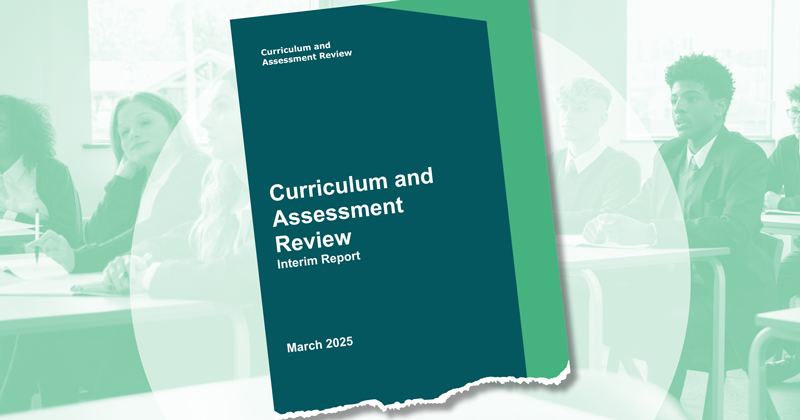
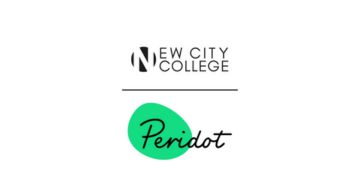
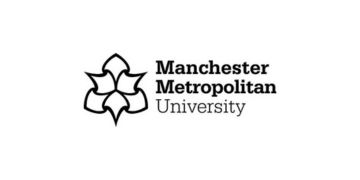





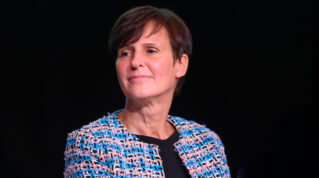

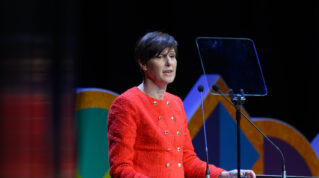

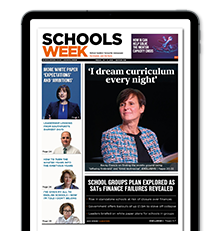
Well all I can say is that I’m glad I left the teaching profession when I did.